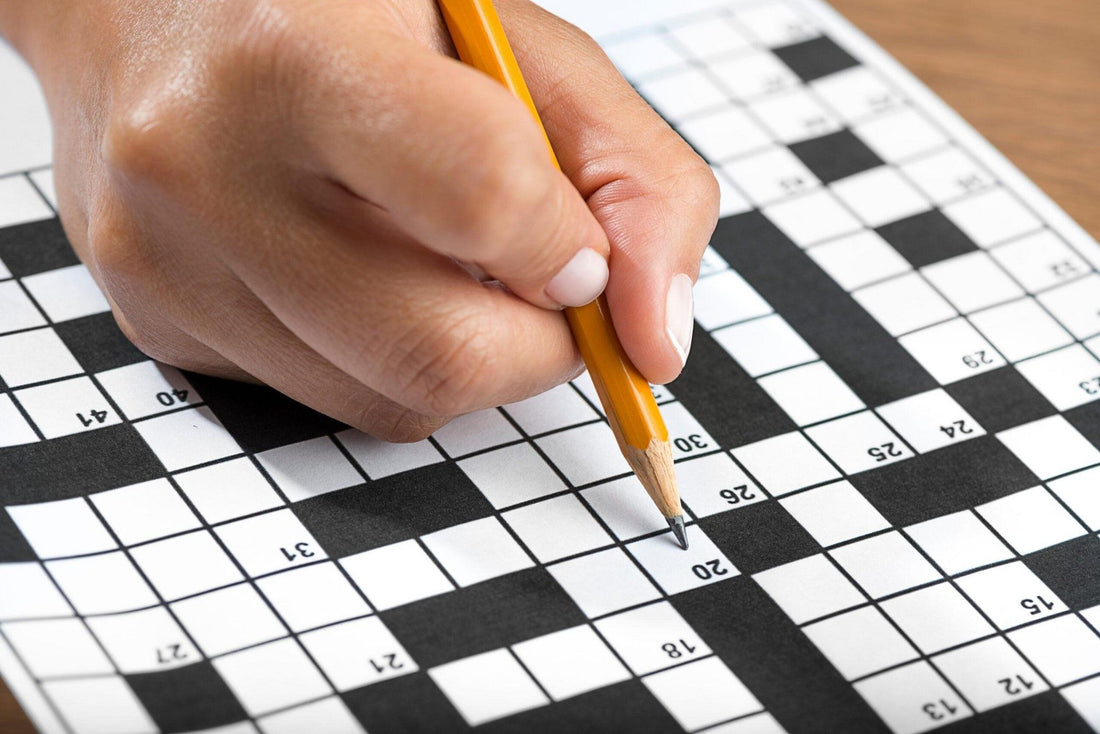
How Word Puzzles Help with Panic Attacks, Stress, and Anxiety
Share
We’ve all felt that wave of stress or anxiety that can seem impossible to shake. For some, it might even escalate into a full-blown panic attack. In these moments, it’s hard to focus, let alone calm down. Surprisingly, word puzzles—crosswords, Sudoku, word searches—can act as a grounding tool to help soothe your mind and regain control. And yes, there’s research to back this up.
One study published in Cognitive Therapy and Research explored how focused activities like puzzles help manage anxiety. The researchers found that engaging in a cognitively absorbing task, such as solving a crossword puzzle or working through a Sudoku grid, shifted participants’ focus away from anxious thoughts. This shift reduces the physiological symptoms of stress, like a racing heart or shallow breathing, by giving the brain a structured activity to latch onto. Essentially, puzzles act as a distraction that pulls your mind into the present moment.

In another study, featured in Stress and Health, participants who regularly completed word puzzles reported lower levels of cortisol—the body’s main stress hormone. By focusing on solving puzzles, participants entered a state of flow, where their attention was fully immersed in the task at hand. This flow state not only helped reduce stress levels but also improved overall mood and emotional regulation. The study concluded that puzzles could be a simple, non-invasive way to manage stress and anxiety in daily life.
Additionally, research in Applied Psychology: Health and Well-Being highlighted how puzzles can help during panic attacks. The structured, repetitive nature of puzzles was shown to have a calming effect on the nervous system. By focusing on finding a word in a word search or filling in the next number in a Sudoku, participants were able to slow their breathing and regain a sense of control. This grounding effect helps break the cycle of escalating panic, giving the mind and body a chance to stabilize.
Beyond the science, there’s the personal experience so many of us have had: the moment of calm that comes when you immerse yourself in solving a puzzle. You’re not thinking about tomorrow’s deadlines or replaying the events of the day. You’re fully focused on the task in front of you, and that focus can be a powerful tool for managing overwhelming emotions.
For those who struggle with stress or anxiety, incorporating word puzzles into daily routines can provide a much-needed mental escape. Whether it’s a crossword over coffee or a word search before bed, these activities offer a way to relax and recenter. And for moments of acute stress, having a puzzle on hand—whether it’s in a book or on your phone—can be a lifesaver, literally giving your brain something else to focus on.
Word puzzles aren’t just about solving clues or filling in blanks—they’re about taking a moment to breathe, to focus, and to let your mind settle. The next time you feel stress creeping in, grab a puzzle and let it work its magic.
